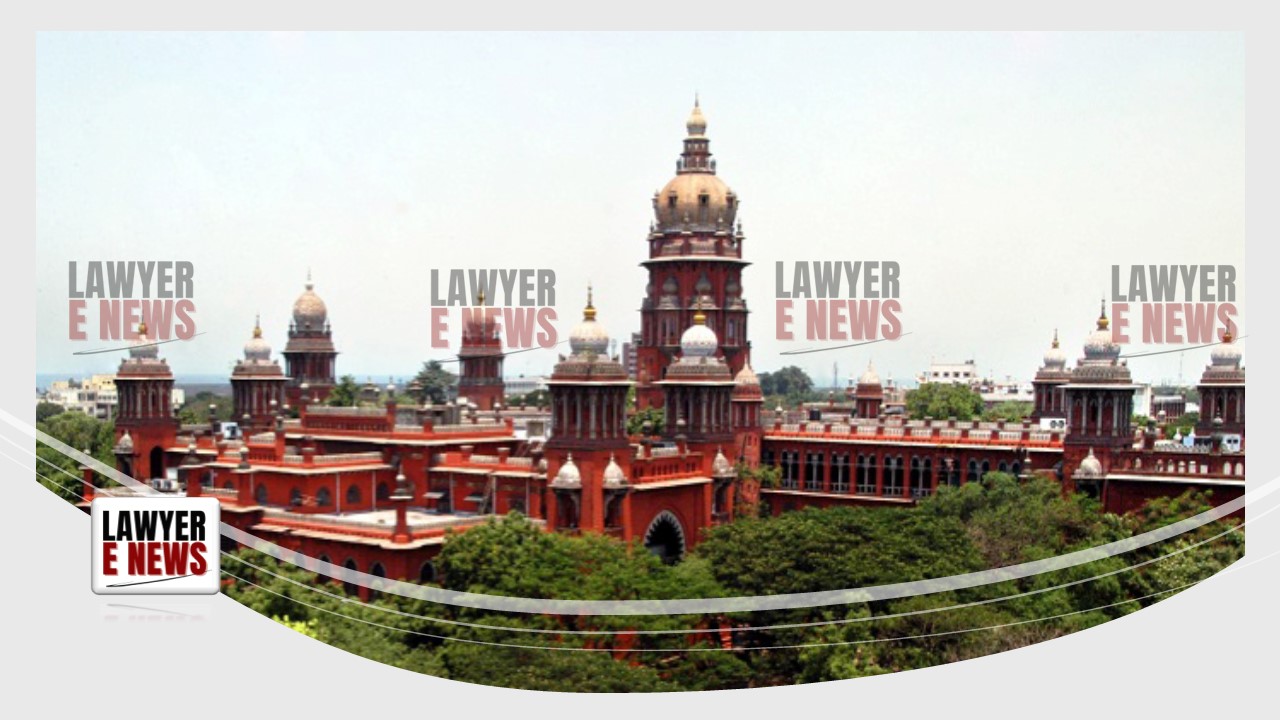-
by Admin
15 February 2026 5:35 AM



Madras High Court delivered a ruling in the long-standing family dispute between Mr. G. Anand and Mrs. Satiswari concerning the probate of a Will dated 28th December 1968 and a partition of the family property. The court upheld the Will and dismissed the partition suit, bringing an end to a 40-year delay in addressing the will’s validity. The court decreed that letters of administration be issued for the property, putting to rest claims that the Will was forged or improperly delayed in probate.
The case originated when Mrs. Satiswari and her co-plaintiffs filed a suit seeking partition of the property belonging to V. Subramania Mudaliar, who had passed away in 1970. They contested the Will dated 28th December 1968, which bequeathed the property solely to his daughter, Mrs. G. Saroja @ Pattammal. The plaintiffs claimed that the property was their grandmother's (Lakshmi Bai Ammal) absolute property, and thus their father could not execute a Will for it.
The defendants, led by Mr. G. Anand (son of G. Saroja), argued that the Will had been acted upon since 1970, and the plaintiff's father (V. Sundaravadivelu Mudaliar) was aware of the Will but never contested it. The property records had been updated in favor of Saroja soon after the death of her father, Subramania Mudaliar.
Validity of the Will: The plaintiffs alleged that the 1968 Will was forged and never probated in the past 40 years. They sought a declaration that the Will was void.
Limitation: The defendants claimed that the Will had been acted upon and was beyond challenge, as the legal heirs had remained silent for decades.
The Madras High Court rejected the arguments made by the plaintiffs regarding the authenticity of the Will. It observed that the Will was acknowledged by the sons of the testator, including the plaintiffs' father, during their lifetimes. The court noted:
The Will had been in effect since 1970, with the sole beneficiary, Mrs. Saroja, having taken possession of the property and updated legal records, including obtaining a patta in her name.
No objections were raised by the brothers of the testator during their lifetimes, including when significant changes were made to the property, such as reconstruction work in 1998.
The court held that the challenge brought forth after 40 years was barred by limitation and Section 69 of the Indian Evidence Act had been satisfied by examining witnesses who testified to the authenticity of the Will's execution.
The court further dismissed the partition suit (C.S. No. 325 of 2013), concluding that there was no basis for partition, as the property had been bequeathed solely to Mrs. Saroja. It also ruled that the Settlement Deed of 2007 executed by her in favor of her children was valid.
The court's decision solidified the 1968 Will as valid, granting letters of administration to the legal heirs of the original beneficiary, Mrs. Saroja. The ruling dismissed the partition claims, underscoring the importance of timely legal challenges to inheritance disputes.
Date of Decision: 27th September 2024
Mr. G. Anand vs. Mrs. Satiswari
